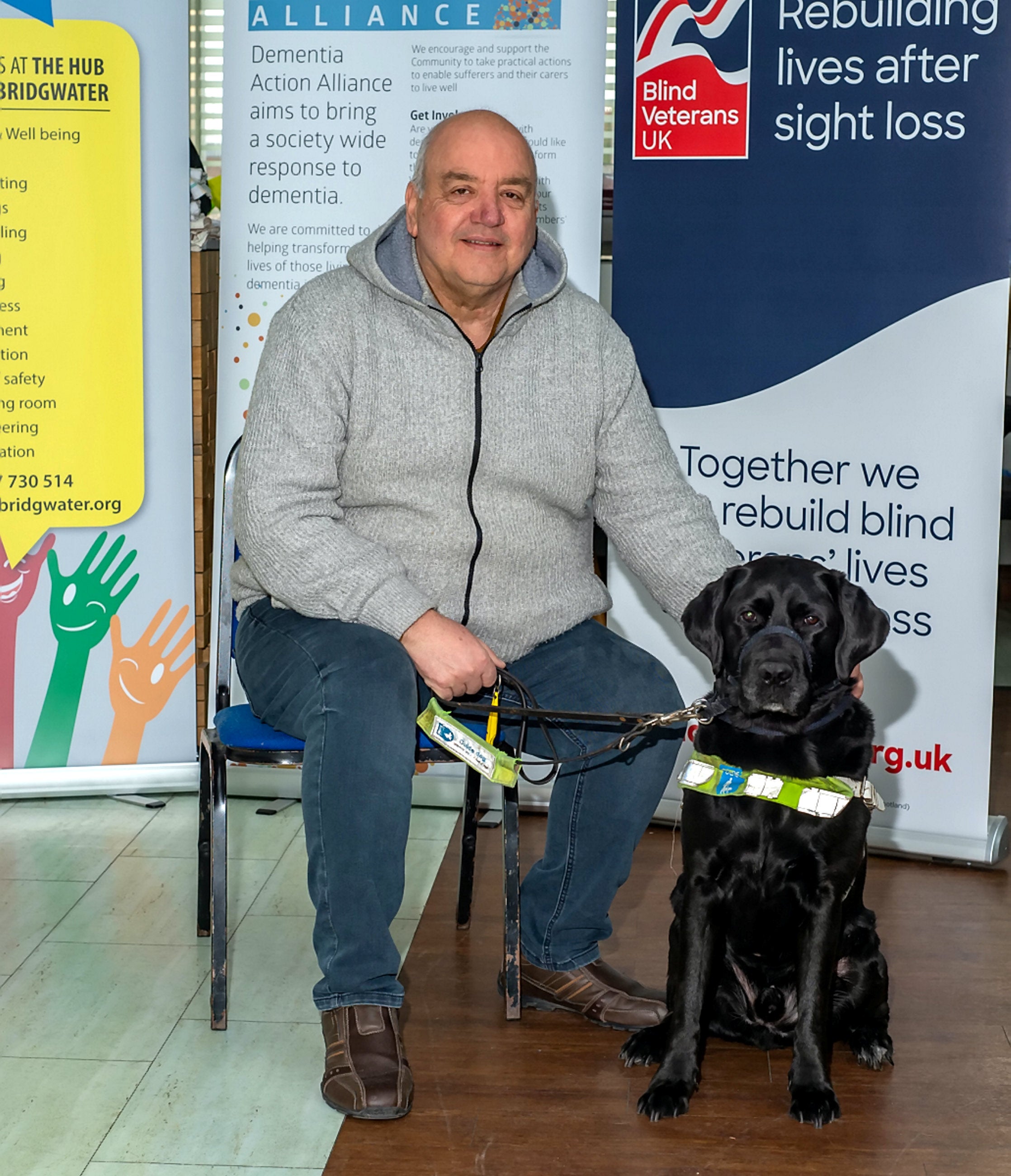Restaurant forced to pay compensation after blind man refused entry
John Hardy was told that having his dog, Sidney, in the restaurant would be “unhygienic”

Your support helps us to tell the story
From reproductive rights to climate change to Big Tech, The Independent is on the ground when the story is developing. Whether it's investigating the financials of Elon Musk's pro-Trump PAC or producing our latest documentary, 'The A Word', which shines a light on the American women fighting for reproductive rights, we know how important it is to parse out the facts from the messaging.
At such a critical moment in US history, we need reporters on the ground. Your donation allows us to keep sending journalists to speak to both sides of the story.
The Independent is trusted by Americans across the entire political spectrum. And unlike many other quality news outlets, we choose not to lock Americans out of our reporting and analysis with paywalls. We believe quality journalism should be available to everyone, paid for by those who can afford it.
Your support makes all the difference.An Indian restaurant has been forced to pay £2,000 to a blind man who was refused entry for a family meal due to having a guide dog.
John Hardy was told that having his dog, Sidney, in the establishment would be “unhygienic” and refused him entry.
As the situation intensified, the staff member began only to speak to John’s son rather than him, which upset him.
As a result of the “embarrassing” conversation, he and his wife, son and granddaughter decided to leave Bengal Spice in Williton, Somerset, in September 2021.
Under the Equality Act 2010, restaurants and other service providers have a duty to make reasonable adjustments to avoid putting people with disabilities at a substantial disadvantage.
A guide dog is classed as a reasonable adjustment under the Act.
After taking legal advice and speaking to the Royal National Institute of Blind People (RNIB), the 66-year-old launched a lawsuit.
John said: “I tried to explain that I was blind and Sidney was a guide dog but he wouldn’t listen and said it was unhygienic to have a dog near the kitchen.
“I eat out quite a bit and everybody knows Sidney locally, but when you walk into somewhere new, you are anxious and hyper-aware, wondering if you will have to present your argument and explain why a guide dog is allowed into a restaurant.”

Following a one-day hearing at Taunton County Court last month (December 2022) in which the judgement was awarded in Mr Hardy’s favour, he was awarded compensation of £2,000 which the restaurant must pay.
The legal team was led by Simmons’ international head of dispute resolution partner, Emily Monastiriotis, working with disputes and investigations associate Emily May, supported by senior contract Lawyer Christopher Chipperton and trainee solicitor Lowri Rutter.
Emily Monastiriotis, partner and international head of disputes resolution, said: “We are really pleased to have assisted Mr Hardy in successfully bringing a claim in respect of the discrimination he encountered on this occasion but we are aware of the ongoing discrimination faced by people living with a disability.
“We hope this sends a strong message that discrimination is unacceptable and reminds businesses of their obligations under the Equality Act 2010.”

Anita Marshall, specialist lead in RNIB’s legal rights service, said: “Unfortunately, cases of guide dog refusals like John experienced continue to be far from unusual, with restaurants and other service providers often oblivious to or ignoring the legislation.
“We were pleased to be able to work with Simmons & Simmons to bring this case and to see John vindicated in the judgement.
“Our Legal Rights team works tirelessly to challenge discrimination including access refusals and would encourage blind and partially sighted people to report incidents and challenge discrimination wherever it occurs.”




Join our commenting forum
Join thought-provoking conversations, follow other Independent readers and see their replies
13Comments